
Avarua: The Heartbeat of the Cook Islands
Avarua, the charming capital of the Cook Islands, is a delightful blend of Polynesian culture and natural beauty. Nestled on the northern coast of Rarotonga, this vibrant town offers a unique mix of traditional island life and modern amenities. As you stroll through its streets, you'll be greeted by friendly locals, colorful markets, and a stunning backdrop of lush mountains and pristine beaches. One of the highlights of Avarua is its bustling Punanga Nui Market, held every Saturday. Here, you can immerse yourself in the local culture, sample fresh tropical fruits, and find unique handicrafts made by local artisans. The market is a great place to pick up souvenirs and taste traditional Cook Islands cuisine. For history buffs, Avarua has several historical sites worth exploring. The Cook Islands National Museum provides insights into the island's rich heritage, while the whitewashed Cook Islands Christian Church, built in 1853, stands as a testament to the island's colonial past. Nearby, you can visit the Takamoa Theological College, one of the oldest institutions in the South Pacific. Nature lovers will find plenty to do in and around Avarua. The town is a gateway to Rarotonga's stunning landscapes, from its crystal-clear lagoon to the lush interior. Take a hike through the rugged terrain of the Cross-Island Track, or simply relax on the idyllic Muri Beach, known for its tranquil waters and vibrant marine life.
Local tips in Avarua
- Visit the Punanga Nui Market on Saturdays for the best local produce and crafts.
- Rent a scooter or bicycle to explore the island at your own pace.
- Try local delicacies like ika mata (raw fish salad) and rukau (taro leaves).
- Wear reef shoes when swimming to avoid coral cuts.
- Respect local customs and dress modestly when visiting villages.
Avarua: The Heartbeat of the Cook Islands
Avarua, the charming capital of the Cook Islands, is a delightful blend of Polynesian culture and natural beauty. Nestled on the northern coast of Rarotonga, this vibrant town offers a unique mix of traditional island life and modern amenities. As you stroll through its streets, you'll be greeted by friendly locals, colorful markets, and a stunning backdrop of lush mountains and pristine beaches. One of the highlights of Avarua is its bustling Punanga Nui Market, held every Saturday. Here, you can immerse yourself in the local culture, sample fresh tropical fruits, and find unique handicrafts made by local artisans. The market is a great place to pick up souvenirs and taste traditional Cook Islands cuisine. For history buffs, Avarua has several historical sites worth exploring. The Cook Islands National Museum provides insights into the island's rich heritage, while the whitewashed Cook Islands Christian Church, built in 1853, stands as a testament to the island's colonial past. Nearby, you can visit the Takamoa Theological College, one of the oldest institutions in the South Pacific. Nature lovers will find plenty to do in and around Avarua. The town is a gateway to Rarotonga's stunning landscapes, from its crystal-clear lagoon to the lush interior. Take a hike through the rugged terrain of the Cross-Island Track, or simply relax on the idyllic Muri Beach, known for its tranquil waters and vibrant marine life.
When is the best time to go to Avarua?
Iconic landmarks you can’t miss
Trader Jacks
Experience the vibrant flavors of Avarua at Trader Jacks, where stunning ocean views meet delicious grill cuisine in a lively atmosphere.
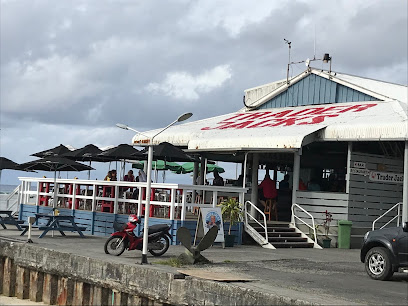
Punanga Nui Market
Explore the lively Punanga Nui Market in Avarua for fresh produce, local crafts, and an authentic taste of Rarotongan culture.
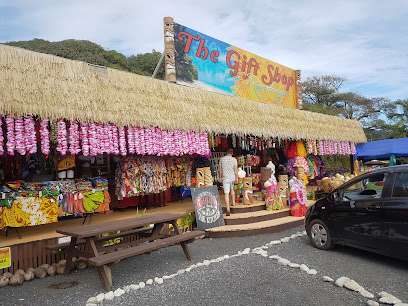
Muri Night Markets
Discover the vibrant Muri Night Markets, a culinary paradise offering a delightful mix of local flavors, fresh ingredients, and a lively atmosphere in Ngatangiia District.
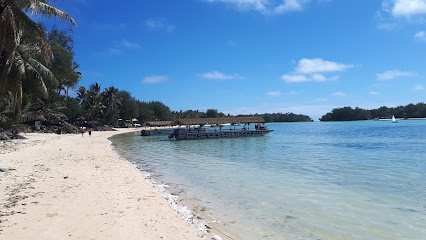
Koka Lagoon Cruises
Discover the enchanting waters and vibrant culture of Rarotonga with Koka Lagoon Cruises, where adventure meets tranquility in the Cook Islands.
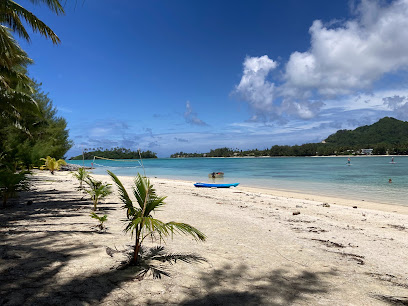
Te Vara Nui Village
Experience the vibrant culture and breathtaking beauty of Te Vara Nui Village in Rarotonga, where Polynesian traditions come to life.
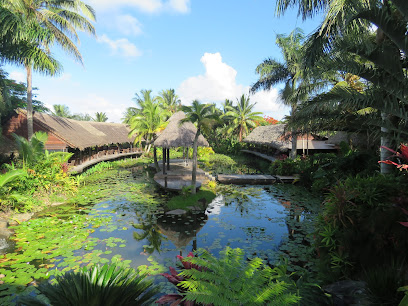
Maire Nui Gardens and Cafe
Explore the lush beauty of Maire Nui Gardens and Cafe in Rarotonga, where fresh cuisine meets stunning botanical landscapes.
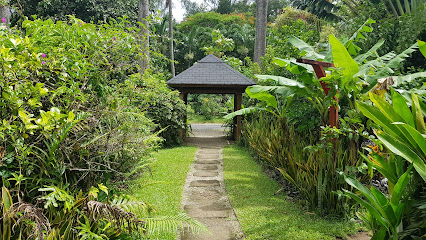
Antipodes rarotonga
Experience the flavors of the Cook Islands at Antipodes Rarotonga, where local ingredients meet island hospitality in a stunning tropical setting.
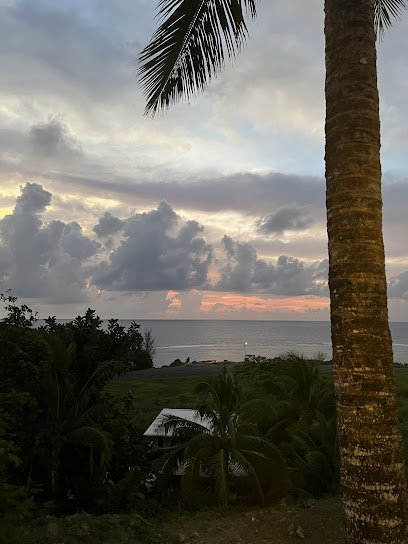
Palace Takeaways
Discover the authentic tastes of the Cook Islands at Palace Takeaways, your go-to for delicious takeout in Avarua.
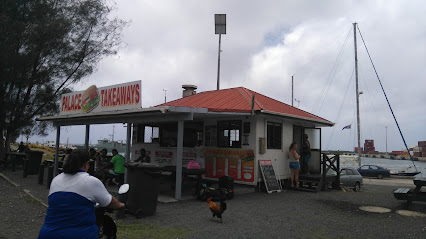
Snorkel Cook Islands
Experience the vibrant underwater world of the Cook Islands with Snorkel Cook Islands – an unforgettable snorkeling adventure awaits you.

Rarotonga Turtle Tours
Dive into an unforgettable adventure with Rarotonga Turtle Tours, where swimming with sea turtles meets the beauty of the Cook Islands' vibrant marine life.
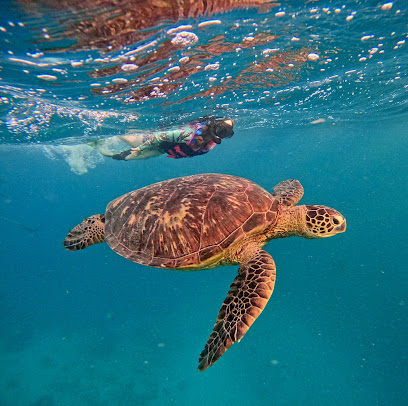
Te Ara Cook Islands Museum of Cultural Enterprise
Explore the rich cultural heritage of the Cook Islands at Te Ara Museum, where tradition meets innovation in a stunning beachfront location.
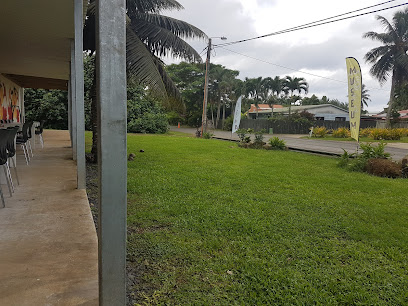
Te Rua Manga (The Needle)
Explore Te Rua Manga, the breathtaking Needle of the Cook Islands, offering stunning views and unforgettable hiking experiences.
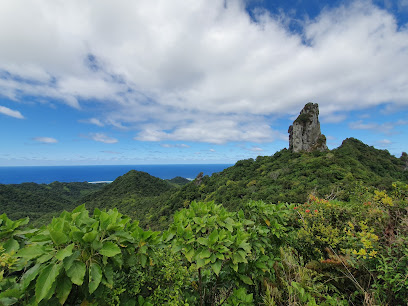
Wigmore's Waterfall
Experience the serene beauty of Wigmore's Waterfall, a stunning swimming lake in Takitumu District, perfect for relaxation and adventure.
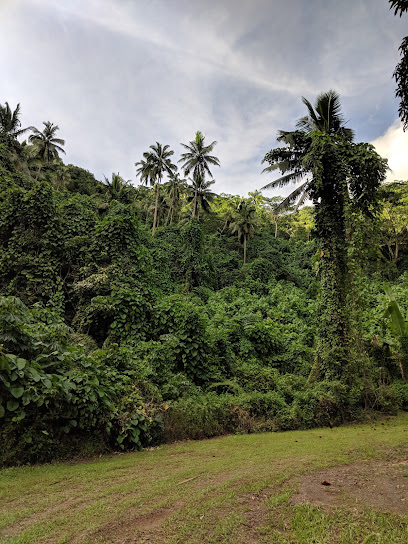
Ariki Adventures
Discover the thrill of adventure sports at Ariki Adventures, where unforgettable experiences await in the stunning waters of the Cook Islands.
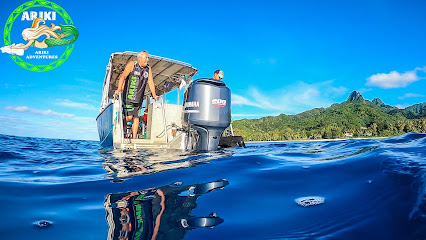
Cafe Ariki
Discover the flavors of the Cook Islands at Cafe Ariki, a beloved Avarua restaurant offering delicious local and international dishes in a cozy atmosphere.
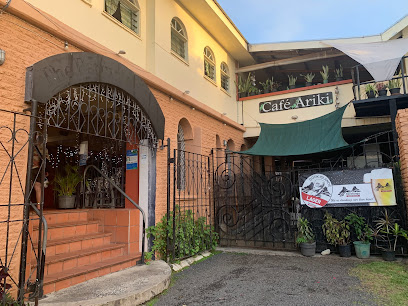
Unmissable attractions to see
Captain Tamas Lagoon Cruizes
Discover Rarotonga's Muri Lagoon with Captain Tama's Cruizes: Snorkeling, BBQ, culture, and unforgettable memories await in paradise!
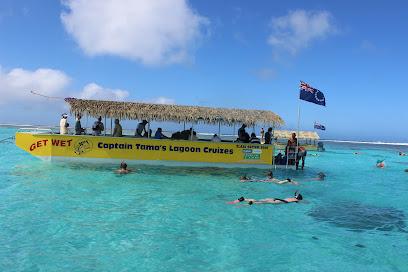
Rarotonga
Discover Rarotonga: Polynesian paradise with lush volcanic peaks, pristine beaches, vibrant culture, and a tranquil lagoon.
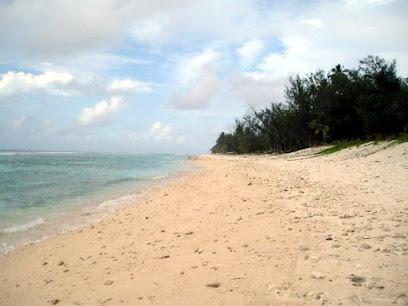
Maire Nui Gardens and Cafe
Discover Rarotonga's hidden gem: a lush botanical garden with vibrant flora, tranquil lily ponds, and a delightful garden-to-table cafe experience.
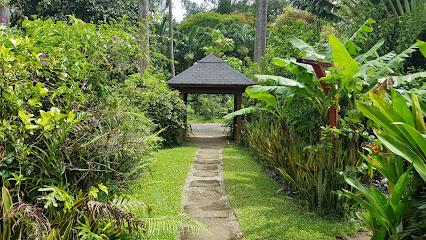
Shipwreck Hut Bar & Restaurant & Accomodation
Experience the vibrant atmosphere of Shipwreck Hut Bar & Restaurant in Arorangi, where delicious cuisine meets live music and stunning ocean views.
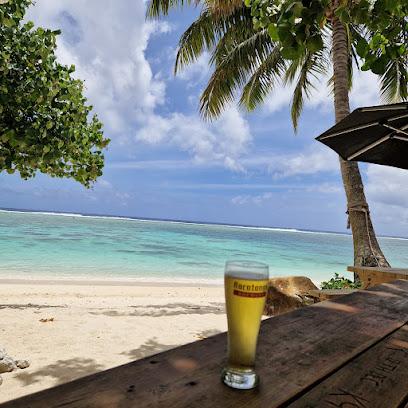
Te Ara Cook Islands Museum of Cultural Enterprise
Explore the rich cultural heritage of the Cook Islands at Te Ara Museum, a key attraction in Rarotonga's stunning Muri Beach area.
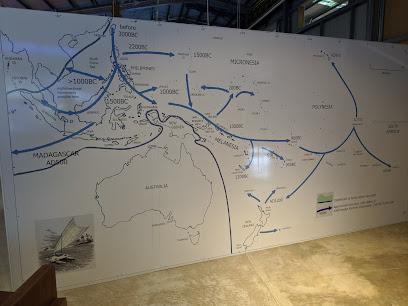
Ariki Adventures
Experience Rarotonga's underwater magic with Ariki Adventures: Guided sea scooter turtle tours in a stunning blue lagoon. Eco-friendly and unforgettable!
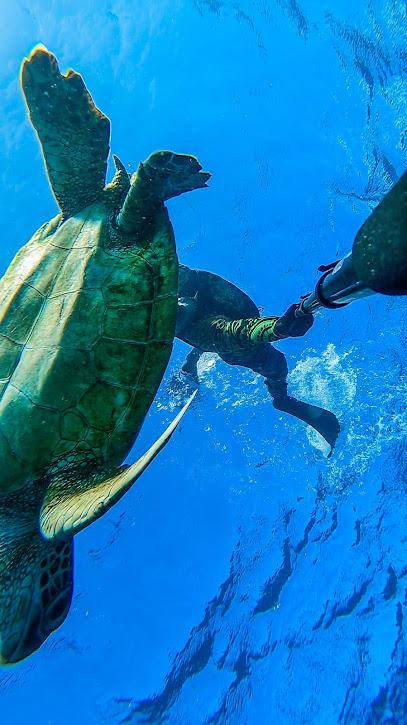
Te Rua Manga (The Needle)
Explore Te Rua Manga, the iconic Needle of Rarotonga, where adventure meets stunning natural beauty in the heart of the Cook Islands.
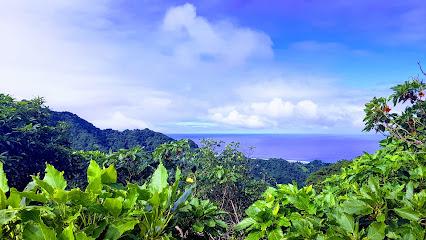
Muri Beach
Experience the enchanting beauty of Muri Beach in the Cook Islands, where crystal-clear waters and lush landscapes create a tropical paradise.
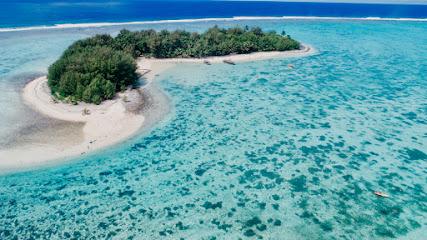
Black Rock
Explore Rarotonga's iconic Black Rock: where volcanic formations meet Polynesian legend, offering stunning views, snorkeling, and cultural connection.
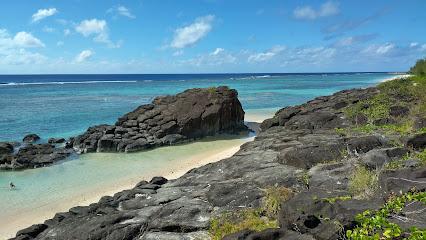
Raro Reef Sub
Explore the mesmerizing underwater world of Avarua with Raro Reef Sub, where adventure meets the beauty of the Cook Islands' marine life.
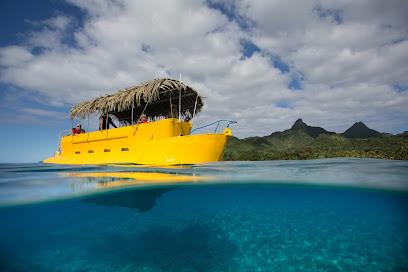
Cook Islands Library & Museum
Discover Cook Islands' heritage through artifacts, rare books, and historical exhibits in Avarua. A cultural gem for every visitor.
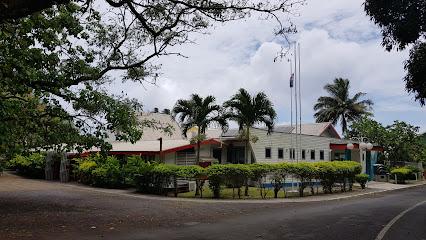
Muri Lagoon
Discover Muri Lagoon: Rarotonga's iconic turquoise paradise offering snorkeling, water sports, and idyllic motu for the ultimate South Pacific escape.
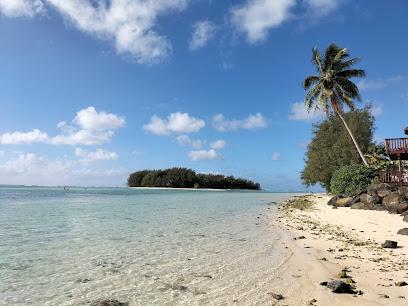
Cook Islands Tours
Experience Rarotonga's culture and beauty with Cook Islands Tours: historical walks, local dining, and comprehensive travel services.
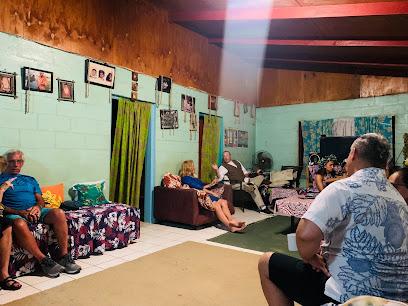
Essential places to dine
Trader Jacks
Experience vibrant dining at Trader Jacks in Avarua – where grilled flavors meet stunning waterfront views.
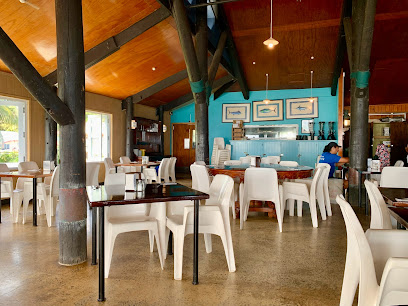
Charlie's Raro
Discover culinary delights at Charlie's Raro - where local flavors meet vibrant atmosphere in beautiful Rarotonga.
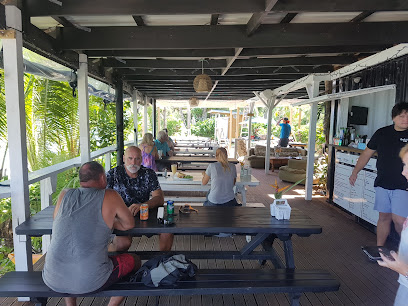
Vili's Burger Joint
Discover mouthwatering burgers and vibrant island vibes at Vili's Burger Joint in Ngatangiia District, Rarotonga.
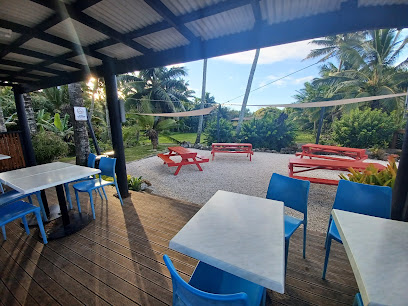
Tamarind House Restaurant & Ukulele Bar
Experience exquisite cuisine and vibrant culture at Tamarind House Restaurant & Ukulele Bar in beautiful Avarua.
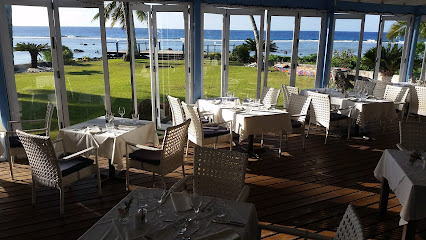
Vaima Restaurant and Bar
Discover the flavors of the Cook Islands at Vaima Restaurant and Bar - where every meal is a tropical escape with breathtaking views.
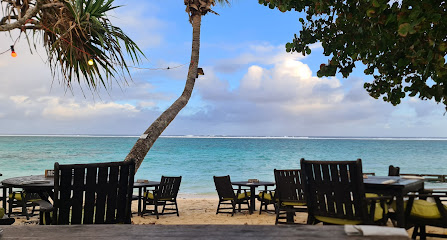
The Islander Hotel & Spa
Discover luxury and relaxation at The Islander Hotel & Spa in Avarua - where stunning views meet exquisite dining and rejuvenating spa experiences.

The Waterline Restaurant and Outrigger Beach Bar
Experience exquisite dining at The Waterline Restaurant and Outrigger Beach Bar in Rarotonga with breathtaking ocean views and delightful local flavors.
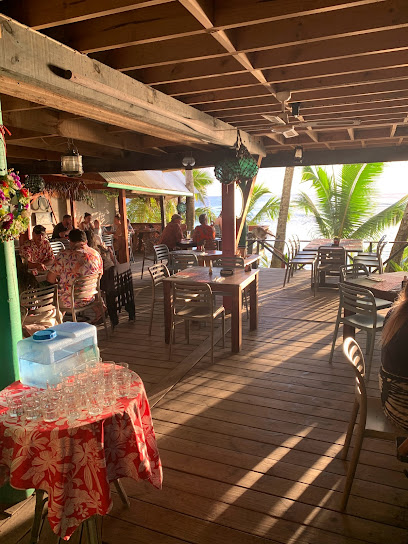
Antipodes rarotonga
Experience authentic Cook Islands cuisine at Antipodes Rarotonga - where local flavors meet stunning ocean views for an unforgettable dining adventure.
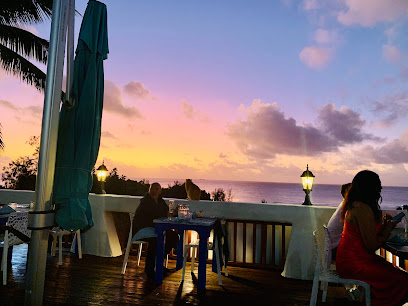
Palace Takeaways
Experience authentic Cook Islands flavors at Palace Takeaways in Avarua—where delicious meals meet island hospitality.
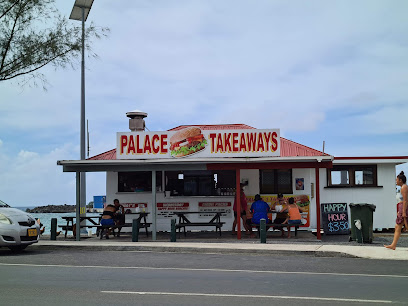
Castaway Resort Rarotonga
Discover tropical bliss at Castaway Resort Rarotonga - where stunning beaches meet delightful cuisine and vibrant culture.

Shipwreck Hut Bar & Restaurant & Accomodation
Discover Shipwreck Hut Bar & Restaurant - A delightful grill and live music venue in Arorangi District offering delicious food and vibrant entertainment.
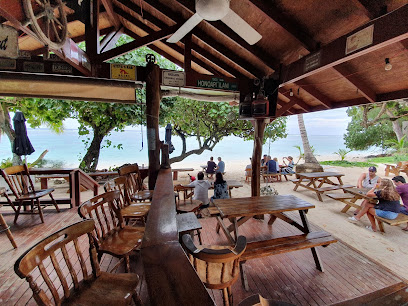
Spaghetti House Restaurant
Experience authentic Italian cuisine at Spaghetti House Restaurant in Arorangi District - a must-visit for food enthusiasts seeking delightful flavors.
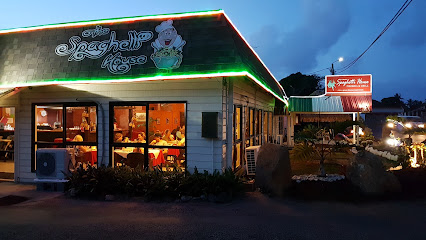
Flying Turtle Cafe
Discover fresh local cuisine at Flying Turtle Cafe in Rarotonga—where delightful flavors meet stunning tropical surroundings.
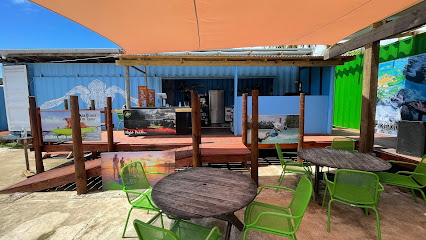
Kikau Hut
Discover authentic Pacific Island cuisine at Kikau Hut in Rarotonga - a must-visit culinary destination for travelers seeking local flavors.
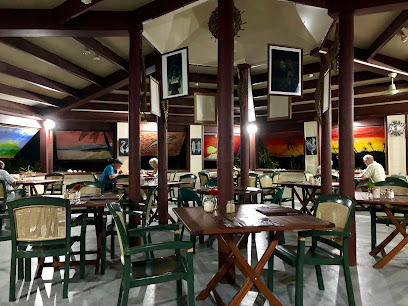
On the Beach Bar and Restaurant
Experience exquisite dining at On the Beach Bar and Restaurant in Rarotonga's Arorangi District—where stunning views meet fresh local cuisine.
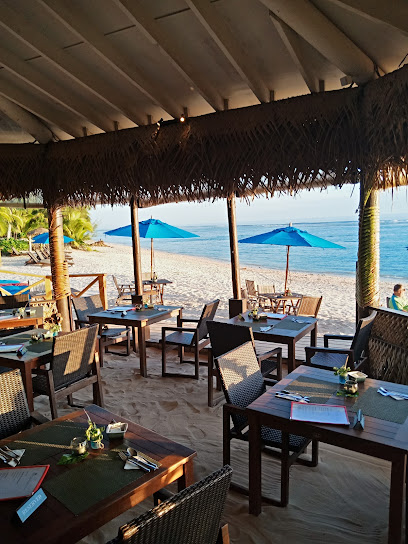
Markets, malls and hidden boutiques
Avarua Shopping Centre
Discover the essence of the Cook Islands at Avarua Shopping Centre, a vibrant hub for local crafts, delicious cuisine, and unique shopping experiences.
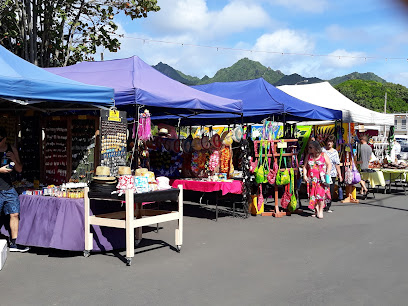
Ollie's Surf Gear
Discover Ollie's Surf Gear in Avarua for the best surf clothing and accessories, perfect for every beach lover and surfer visiting the Cook Islands.
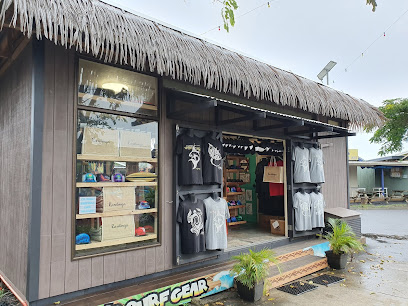
Island Craft Ltd
Explore the charm of Island Craft Ltd, Avarua's premier gift shop for authentic Cook Islands treasures and unique souvenirs.
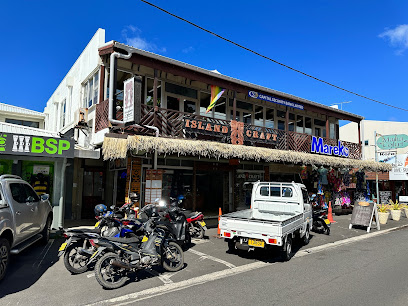
The T-Shirt Factory
Discover unique, locally designed clothing and souvenirs at The T-Shirt Factory in Avarua, the ideal spot for tourists seeking authentic Cook Islands treasures.
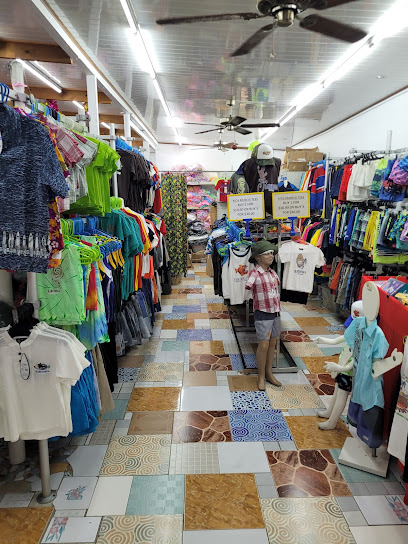
Cooks Fudge Factory/ Perfumes of Rarotonga
Explore a delightful blend of fudge, chocolates, and perfumes at Cooks Fudge Factory in Avarua, Rarotonga – a unique shopping experience awaits.
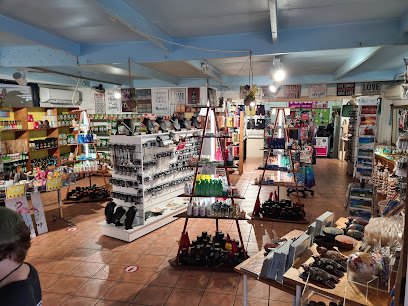
Vonnias Warehouse
Discover unique local crafts and international brands at Vonnias Warehouse, Avarua's vibrant shopping hub in the heart of the Cook Islands.
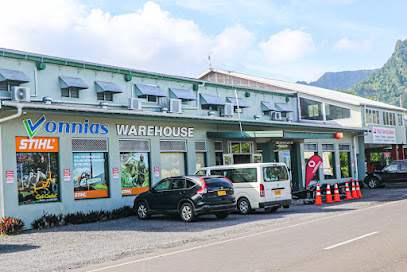
Tuki's Pareu
Explore the vibrant culture of the Cook Islands at Tuki's Pareu, where traditional fashion meets contemporary style in Avarua.
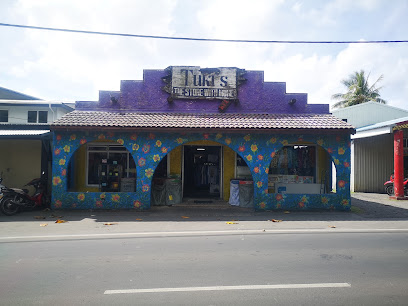
Creative Centre
Discover the Creative Centre in Avarua, where local art and culture come together to create a vibrant shopping experience.
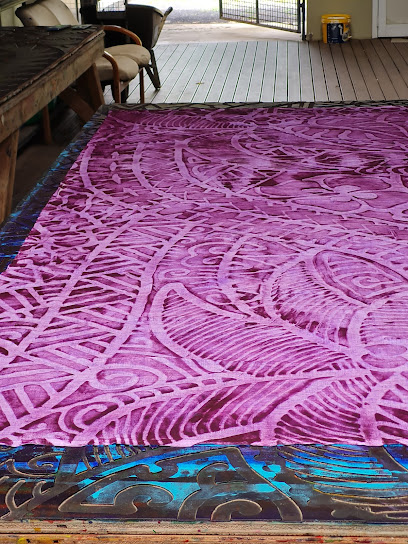
Tivaevae Collectables Cultural Gift Shop
Explore Tivaevae Collectables for unique cultural gifts and handcrafted treasures that embody the spirit of the Cook Islands.
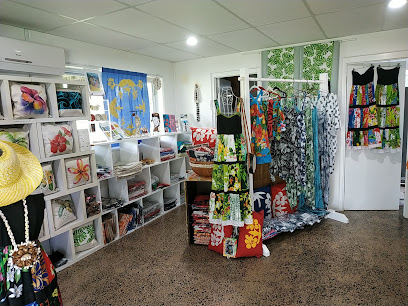
Raro Mart
Discover Raro Mart in Avarua: A vibrant shopping mall offering a unique blend of local goods, antiques, and household essentials.
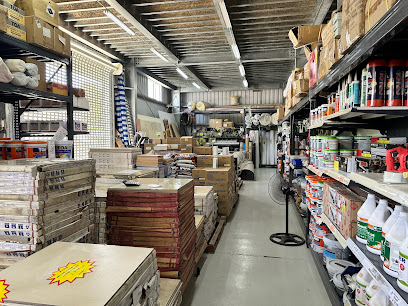
Mareko Island Creations
Explore the vibrant culture of the Cook Islands at Mareko Island Creations, where unique local crafts and handmade treasures await.
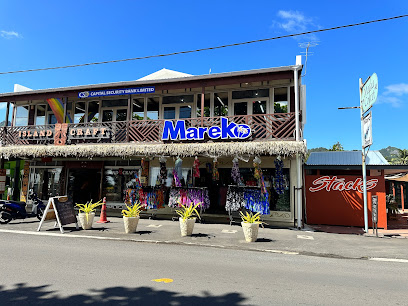
The Little Red Gallery
Explore local artistry at The Little Red Gallery in Rarotonga, where unique creations and vibrant culture come together.
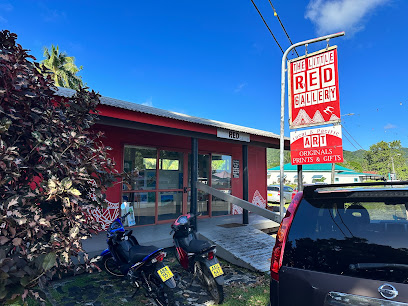
SPCA OP SHOP PUNANGA NUI MARKETS
Discover unique clothing treasures at SPCA Op Shop Punanga Nui Markets in Avarua, supporting animal welfare while enjoying eco-friendly shopping.
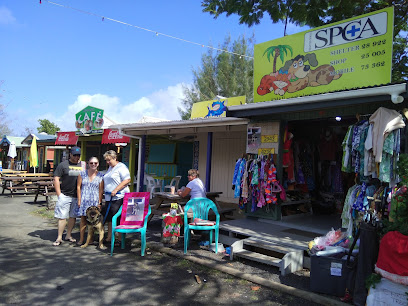
The Gift Shop
Explore The Gift Shop in Avarua for unique souvenirs and local crafts that embody the spirit of the Cook Islands.
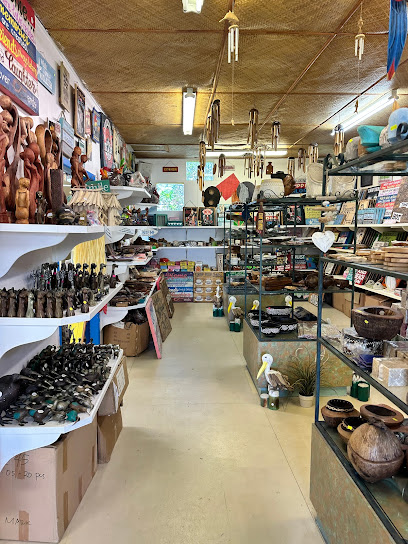
CITC Duty Free
Discover a world of luxury and local treasures at CITC Duty Free in Avarua, Cook Islands - your ultimate shopping destination.
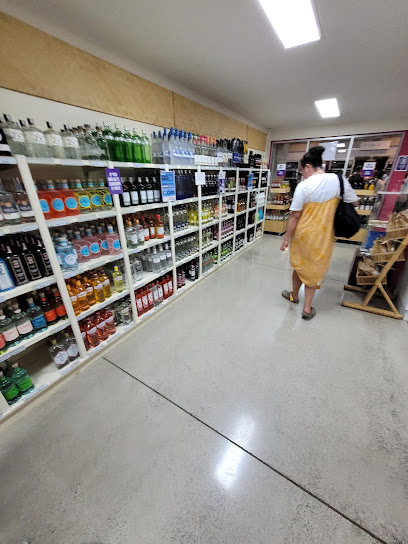
Essential bars & hidden hideouts
Trader Jacks
Discover Trader Jacks: A lively grill and bar in Avarua offering delicious cuisine, vibrant nightlife, and breathtaking ocean views.
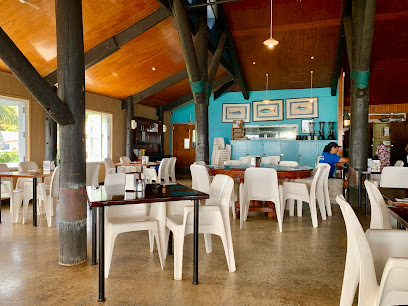
Tamarind House Restaurant & Ukulele Bar
Experience the culinary delights of the Cook Islands at Tamarind House Restaurant & Ukulele Bar, where local flavors meet vibrant entertainment.
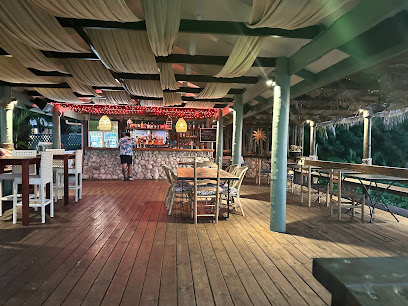
21.3 Vaiana's Bar & Bistro
Experience the vibrant flavors and stunning views at Vaiana's Bar & Bistro, the perfect beachside retreat in Avarua, Cook Islands.
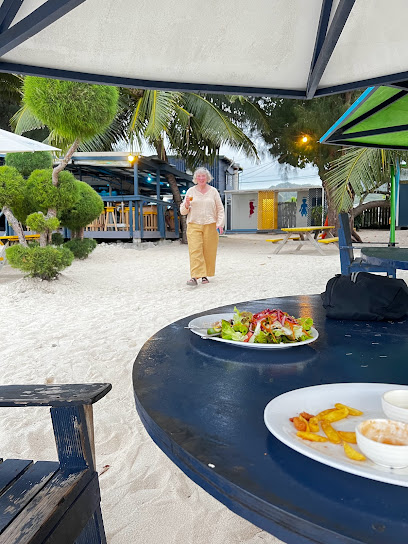
The Waterline Restaurant and Outrigger Beach Bar
Experience the flavors of Rarotonga at The Waterline Restaurant, where stunning lagoon views and delicious cuisine create unforgettable dining moments.
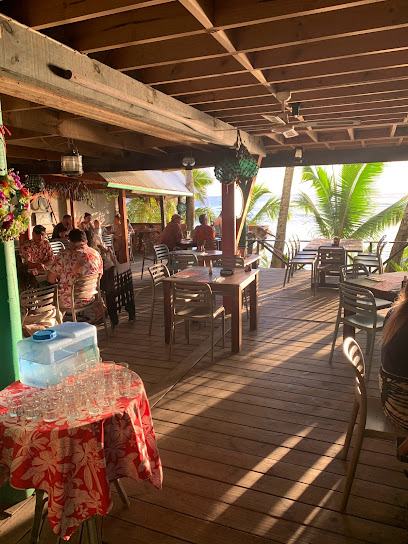
Antipodes rarotonga
Experience the best of Cook Islands cuisine at Antipodes Rarotonga, where local flavors meet stunning tropical views.
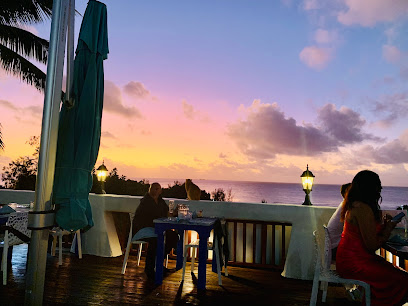
Shipwreck Hut Bar & Restaurant & Accomodation
Discover the vibrant atmosphere of Shipwreck Hut Bar & Restaurant, where delicious grilled dishes meet lively live music in Arorangi District.
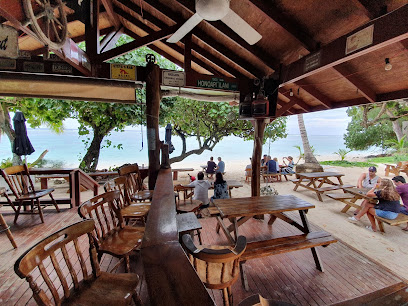
Wilsons Bar & Restaurant
Experience the flavors and vibrant atmosphere of Wilsons Bar & Restaurant in Arorangi, where local culture meets culinary delight.
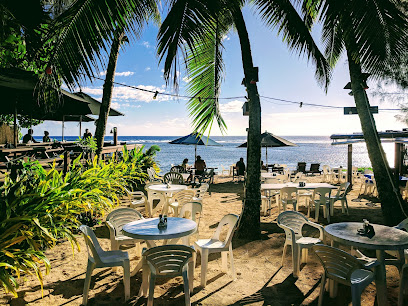
Rehab
Experience the vibrant nightlife at Rehab in Avarua, a premier bar and disco club with lively music, delicious drinks, and a welcoming atmosphere.
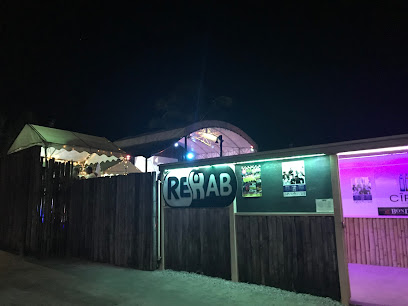
Tumunu Bar and Restaurant
Discover Tumunu Bar and Restaurant, where vibrant island culture meets delicious local cuisine and refreshing drinks in the heart of Arorangi District.
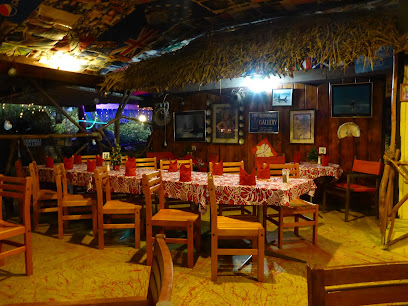
COCOCKTAIL
Discover the exquisite flavors of Rarotonga at CocoCocktail, where stunning views and refreshing cocktails meet culinary excellence.
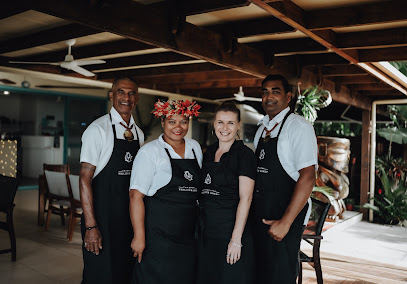
Hula Bar
Discover the lively Hula Bar in Rarotonga, where tropical drinks and vibrant music create the perfect island nightlife experience.
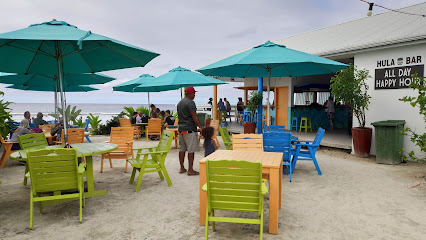
Roadhouse Bar & Restaurant
Discover Roadhouse Bar & Restaurant: Where delicious food meets vibrant entertainment in the heart of Arorangi District.
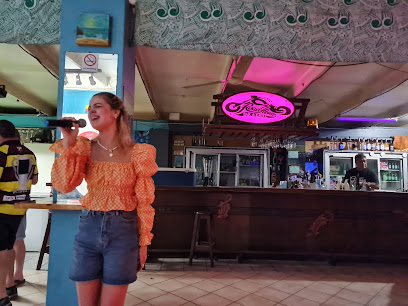
Margaritas Bistro & Bar
Discover Margaritas Bistro & Bar in Avarua for an unforgettable culinary journey blending local and international flavors in a vibrant atmosphere.
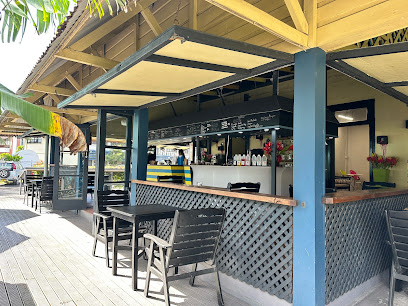
Tiki Bar
Experience the tropical charm of Tiki Bar in Avarua, where refreshing drinks and vibrant vibes await every visitor.
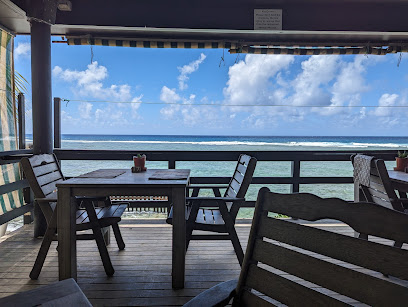
On the Rocks (OTR) Bar
Experience the vibrant nightlife at On the Rocks Bar, your go-to spot in Rarotonga for refreshing cocktails and stunning ocean views.
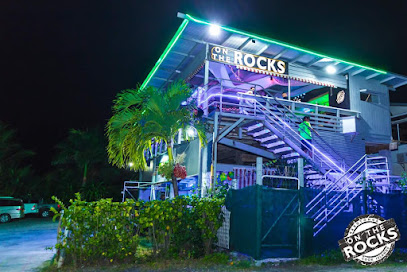
Local Phrases
-
- HelloKia Orana
[Kee-ah O-rah-nah] - GoodbyeKa Kite
[Kah Kee-teh] - YesAe
[Eye] - NoKare
[Kah-reh] - Please/You're welcomeMeitaki
[May-tah-kee] - Thank youMeitaki
[May-tah-kee] - Excuse me/SorryAro'a
[Ah-roh-ah] - How are you?E haere mai?
[Aye hah-reh my?] - Fine. And you?Meitaki. E koe?
[May-tah-kee. Aye koh-eh?] - Do you speak English?E korero koe i te reo Ingarangi?
[Aye koh-reh-roh koh-eh ee teh reh-oh Ing-gah-rang-ee?] - I don't understandKare au e 'akatangi
[Kah-reh ow eh ah-kah-tang-ee]
- HelloKia Orana
-
- I'd like to see the menu, pleaseKa meitaki kia kite i te reta, 'ei a?
[Kah may-tah-kee kee-ah kee-teh ee teh reh-tah, aye ah?] - I don't eat meatKare au e kai i te kikau
[Kah-reh ow eh kah-ee ee teh kee-kow] - Cheers!Manuia!
[Mah-noo-yah!] - I would like to pay, pleaseKa meitaki kia uanga, 'ei a?
[Kah may-tah-kee kee-ah oo-ah-ngah, aye ah?]
- I'd like to see the menu, pleaseKa meitaki kia kite i te reta, 'ei a?
-
- Help!Ara!
[Ah-rah!] - Go away!Tikaina!
[Tee-kai-nah!] - Call the Police!Tiki mai te Kuki Airani!
[Tee-kee my teh Koo-kee Eye-rah-nee!] - Call a doctor!Tiki mai te vaevae
[Tee-kee my teh vah-eh-vah-eh] - I'm lostKua 'oki au
['Koo-ah oh-kee ow] - I'm illKare au e ora
[Kah-reh ow eh oh-rah]
- Help!Ara!
-
- I'd like to buy...Ka meitaki kia 'oko...
[Kah may-tah-kee kee-ah oh-koh...] - I'm just lookingKare au e 'oko
[Kah-reh ow eh oh-koh] - How much is it?E hia te moni?
[Aye hee-ah teh moh-nee?] - That's too expensiveTei te moni teitei
[Teh teh moh-nee teh-ee-teh-ee] - Can you lower the price?E taea e koe te oko i te moni?
[Aye tah-eh-ah eh koh-eh teh oh-koh ee teh moh-nee?]
- I'd like to buy...Ka meitaki kia 'oko...
-
- What time is it?Ko e aha te taimi?
[Koh eh ah-hah teh tah-ee-mee?] - It's one o'clockKo te tahi
[Koh teh tah-hee] - Half past (10)Te rima 'ei 'ahuru
[Teh ree-mah aye ah-hoo-roo] - MorningApoapo
[Ah-poh-ah-poh] - AfternoonApo
[Ah-poh] - EveningPō
[Poh] - YesterdayAroa
[Ah-roh-ah] - TodayĀnei
[Ah-nay] - TomorrowĀpōpō
[Ah-poh-poh] - 1Tahi
[Tah-hee] - 2Rua
[Roo-ah] - 3Toru
[Toh-roo] - 4Whā
[Fah] - 5Rima
[Ree-mah] - 6Ono
[Oh-noh] - 7Whitu
[Wee-too] - 8Waru
[Wah-roo] - 9Iwa
[Ee-wah] - 10Tekau
[Teh-kow]
- What time is it?Ko e aha te taimi?
-
- Where's a/the...?Kei a te...?
[Keh ee ah teh...?] - What's the address?Ko te tuiraa?
[Koh teh too-ee-rah] - Can you show me (on the map)?E taea e koe te 'akakite mai ia au ('i te mahere)?
[Aye tah-eh-ah eh koh-eh teh ah-kah-kee-teh my ee-ah ow (ee teh mah-here)?] - When's the next (bus)?Ahea ta runga 'ē?
[Ah-heh-ah tah roong-gah ehh?] - A ticket (to ....)Te pere (ki te...)
[Teh peh-reh (kee teh...)]
- Where's a/the...?Kei a te...?
History of Avarua
-
Avarua, the capital of the Cook Islands, was established in the early 19th century as a focal point for trade and governance. The settlement grew around the natural harbor, making it a prime location for both local and foreign vessels.
-
In the 1820s, Christian missionaries from the London Missionary Society arrived in Avarua. Their arrival brought significant changes, including the introduction of Christianity, Western education, and new agricultural practices.
-
The Cook Islands became a British protectorate in 1888, and Avarua served as the administrative center. This period saw the construction of key infrastructure, such as government buildings and churches, which remain historical landmarks today.
-
During World War II, Avarua gained strategic importance as the Cook Islands were used as a base for Allied forces. The construction of airfields and military installations left a lasting impact on the town’s landscape.
-
In 1965, the Cook Islands achieved self-governing status in free association with New Zealand. Avarua became the political and economic hub, where modern governance structures and cultural institutions, such as the National Museum, were established.
-
Avarua is renowned for its vibrant cultural festivals, such as Te Maeva Nui, which celebrates Cook Islands' culture and history. These events highlight traditional dances, music, and crafts, offering a glimpse into the rich heritage of the islands.
-
In recent decades, Avarua has seen significant development aimed at boosting tourism. The town now features modern amenities, resorts, and restaurants, yet it retains its historical charm through preservation efforts and cultural heritage sites.
Avarua Essentials
-
Avarua, the capital of the Cook Islands, is located on the island of Rarotonga. The primary gateway is Rarotonga International Airport (RAR), which receives flights from major hubs like Auckland, Sydney, and Los Angeles. Air New Zealand, Jetstar, and Virgin Australia are some of the airlines that operate routes to Rarotonga. Once you arrive at Rarotonga International Airport, Avarua is just a short 10-minute drive away. Taxis, rental cars, and shuttle services are available at the airport.
-
Avarua and Rarotonga, in general, are easy to navigate. The island has a well-maintained ring road that circles the entire island, making it convenient to explore. Public buses run clockwise and counterclockwise around the island, with Avarua being a central hub for many routes. Taxis are available but can be expensive. Renting a scooter or a car is a popular and practical option for tourists, offering flexibility to explore at your own pace. Bicycles are also available for rent and are a great way to experience the island more intimately.
-
The official currency of the Cook Islands is the New Zealand Dollar (NZD). Credit cards are widely accepted in hotels, restaurants, and larger stores, but it's advisable to carry some cash for smaller establishments and local markets. ATMs are available in Avarua and accept major international cards. It is a good idea to notify your bank of your travel plans to avoid any issues with card transactions.
-
Avarua is generally a safe destination for tourists. However, as with any travel destination, it is important to take standard precautions. Petty theft can occur, so keep your belongings secure and avoid leaving valuables unattended. There are no specific high-crime areas targeting tourists, but it is always best to stay vigilant, especially at night. The local police are friendly and helpful, and their presence is reassuring.
-
In case of emergency, dial 999 for police, fire, or medical assistance. The Rarotonga Hospital in Avarua provides medical services for most health issues, and there are several pharmacies in town for over-the-counter medications. It's recommended to have travel insurance that covers medical emergencies. For lost or stolen passports, the New Zealand High Commission in Avarua can provide assistance.
-
Fashion: Do dress casually and comfortably, but modestly, especially when visiting religious sites or attending local events. Avoid wearing swimwear away from the beach. Religion: Do respect local customs and traditions. Churches are an important part of life here, and it's customary to dress modestly when attending services. Public Transport: Do be courteous and greet the bus driver when boarding. Don't eat or drink on public transport. Greetings: Do greet people with a friendly 'Kia Orana,' which means 'hello' in Cook Islands Maori. A smile and a simple handshake are also appreciated. Eating & Drinking: Do try local dishes and be open to experiencing new flavors. Don't refuse food or drink offerings, as it can be considered impolite.
-
To experience Avarua like a local, visit the Punanga Nui Market on Saturday mornings, where you can buy fresh produce, local crafts, and enjoy live music. Engage with locals, who are known for their friendliness and hospitality. Explore the Avarua waterfront and visit local cafes and eateries to sample traditional dishes. Don't miss out on attending a cultural show to learn about the rich heritage and traditions of the Cook Islands.
Trending Landmark in Avarua
-
Trader Jacks
-
Punanga Nui Market
-
Muri Night Markets
-
Koka Lagoon Cruises
-
Te Vara Nui Village
-
Maire Nui Gardens and Cafe
-
Antipodes rarotonga
-
Palace Takeaways
-
Snorkel Cook Islands
-
Rarotonga Turtle Tours
-
Te Ara Cook Islands Museum of Cultural Enterprise
-
Te Rua Manga (The Needle)
-
Wigmore's Waterfall
-
Ariki Adventures
-
Cafe Ariki
Nearby Cities to Avarua
-
Things To Do in Avatiu
-
Things To Do in Nikao
-
Things To Do in Matavera
-
Things To Do in Arorangi
-
Things To Do in Takitumu
-
Things To Do in Ngatangiia
-
Things To Do in Muri
-
Things To Do in Maupiti
-
Things To Do in Bora Bora
-
Things To Do in Raiatea
-
Things To Do in Huahine
-
Things To Do in Moorea
-
Things To Do in Papeete
-
Things To Do in Tahiti
-
Things To Do in Tetiaroa










